Cancelling GST registration may seem simple, but many businesses make errors that lead to complications, delays, or even penalties. If you’re looking for GST Registration Cancellation Online, you must follow the correct process to avoid unnecessary trouble.
Let’s explore the most common mistakes and how you can steer clear of them:-
- Not Meeting the Eligibility Criteria
- Inaccurate Final GST Return Filing
- Not Clearing Outstanding Liabilities
- Giving False or Insufficient Information
- Ignoring the Reversal of the Input Tax Credit
- Not Following Up on Application Status
- GST Cancellation Without the Correct Documentation
- Disregarding the Legal Repercussions
- Not Notifying Clients and Vendors
- Making a Cancellation Application Too Late
Not Meeting the Eligibility Criteria:
Make sure your company satisfies the eligibility requirements before canceling your GST registration. Some companies terminate their registration without verifying their eligibility, which may result in the application being denied. Verify your company’s eligibility before moving forward.
Inaccurate Final GST Return Filing:
Businesses frequently make the mistake of improperly filing their final GST filings. Before cancellation, the GST authorities demand that you pay off all outstanding debts and file the required returns. If you skip this step, you risk penalties and your application not being processed.
Not Clearing Outstanding Liabilities:
Your request to cancel can be turned down if your company has any unpaid GST obligations. Legal issues arise because many business owners believe they can revoke their registration without paying their debts. Before requesting cancellation, make sure that all payments have been made.
Giving False or Insufficient Information:
Precision is essential when completing the GST cancellation form. Even minor mistakes, such as mismatched tax identification numbers or inaccurate business information, might result in rejection. Make sure all the information is correct before submitting the application.
Ignoring the Reversal of the Input Tax Credit (ITC):
You must reverse the input tax credit on capital goods and stock before cancelling your GST registration. This step is often overlooked by enterprises, which can lead to fines. To avoid paying taxes in the future, compute and reverse the ITC.
Not Following Up on Application Status:
The process is not finished once a cancellation request has been submitted. Many companies assume their application will be accepted automatically and don’t check its status. To be sure there are no new requirements, always check the GST portal.
GST Cancellation Without the Correct Documentation:
You must present the required paperwork to successfully cancel your GST registration. Rejection may result from missing or inaccurate documentation. Before applying, ensure you have all required documentation, including last tax returns, evidence of responsibility clearance, and information about business closure.
Disregarding the Legal Repercussions:
Some companies terminate their GST registration without considering the legal ramifications. If your company is legally required to register, Cancelling your GST registration could result in fines and legal issues. If you’re not sure if you should, speak with an expert.
Not Notifying Clients and Vendors:
You must notify your customers and merchants when your GST registration is cancelled. If you don’t, there may be misunderstandings and you may continue to receive invoices that include GST. To prevent needless disagreements, make sure all of your business partners are aware of your cancellation status.
Making a Cancellation Application Too Late:
If the cancellation process is delayed, additional compliance issues may arise. To avoid additional tax obligations, you should request cancellation as soon as your business is shut down.
Final Thoughts
Avoiding these common mistakes while applying for GST Registration Cancellation Online can prevent unwanted complications. Whether it’s filing the final returns, clearing dues, or ensuring proper documentation, every step is crucial. If you are unsure about the process, consult a tax expert to ensure smooth cancellation without errors.By carefully following the right procedures, you can avoid unnecessary delays and ensure a hassle-free GST registration cancellation experience. So, before you proceed, review these points and make the process smooth and error-free! To get help connecting with Eazy Startups is a great decision.

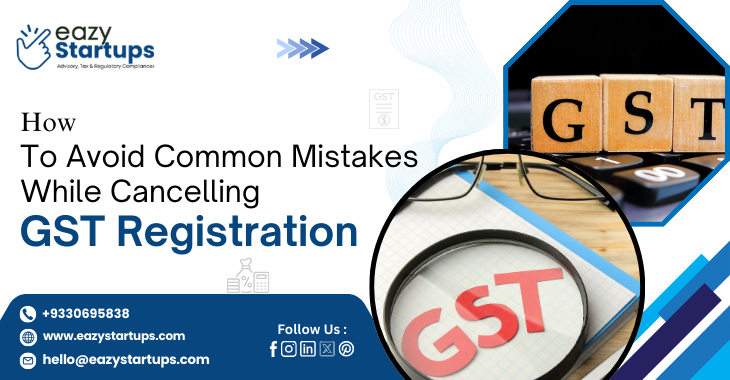
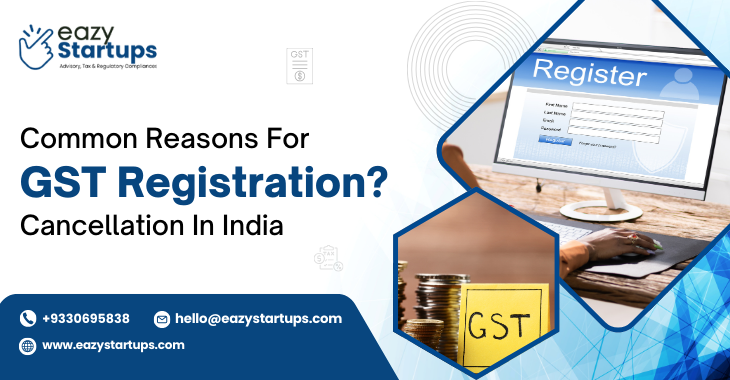
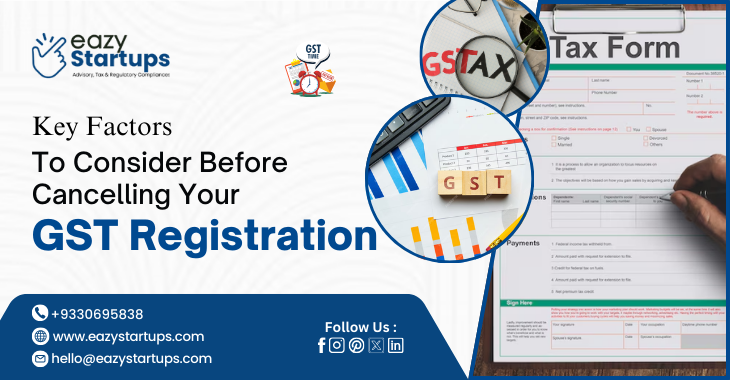
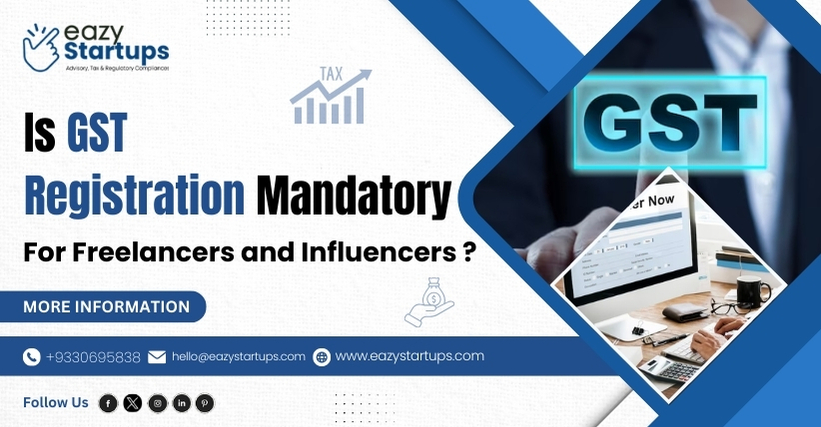
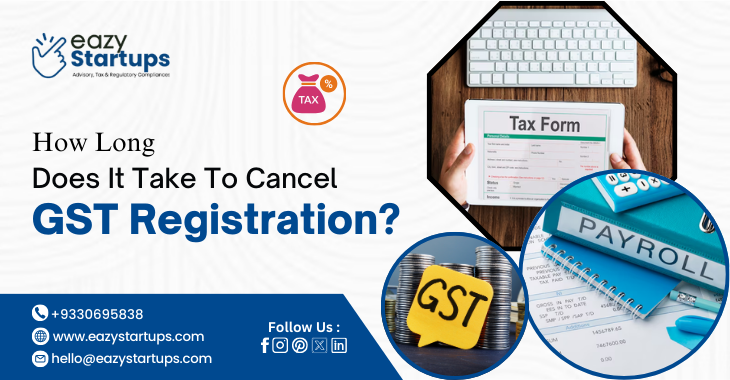
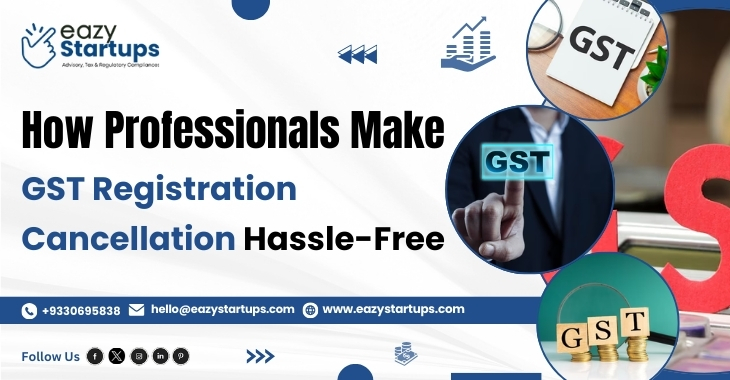
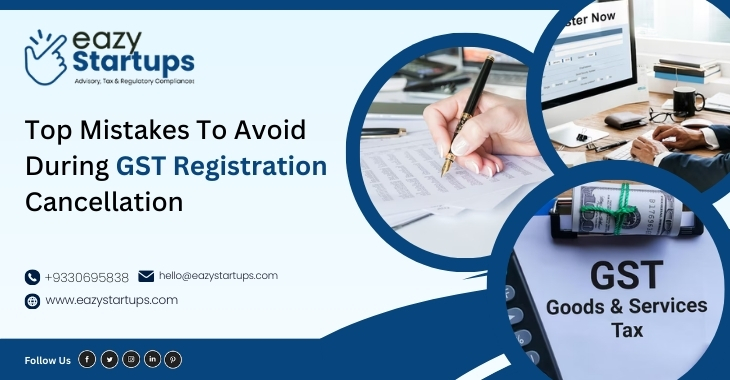

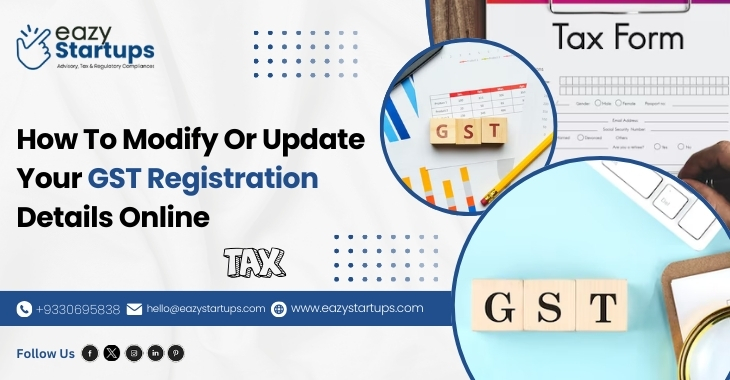

Recent Comments